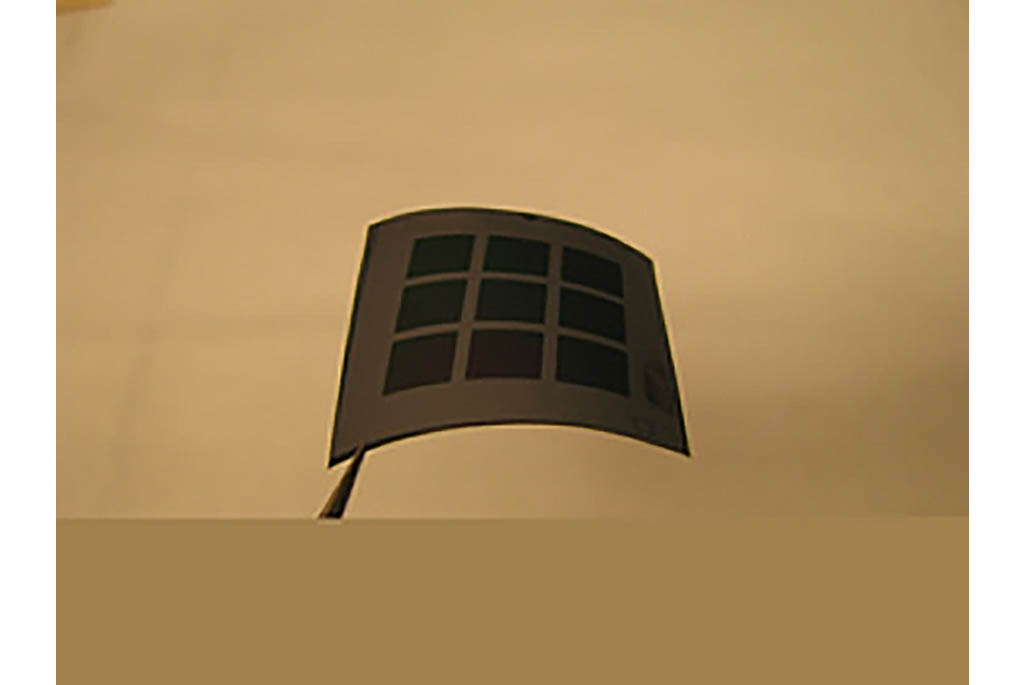Lawrence Berkeley National Laboratory’s Nanocrystal Solar Cell technology, funded by the DOE Office of Science, has the potential to bring solar energy to the marketplace at fossil fuel prices. In 2010, Solexant, the San Jose start-up with exclusive rights to the technology, launched a 2MW pilot line at its California headquarters, which employs approximately 40 people.
Just one micron thick, 200 times thinner than conventional solar cells, Berkeley Lab’s solar cells require significantly less crystalline silicon. They are created with a nanocrystal ink printed onto a panel, using roll-to-roll manufacturing, and then topped with glass to make them potentially the lowest cost-per-watt solar cell in the industry. The nanocrystal solar cell’s efficiency is anticipated to reach a maximum of 25 percent once fully optimized. Their performance can be tuned easily to increase their absorption across the spectrum from ultraviolet to visible light to infrared. In addition, because the solar cells have no organic materials, their expected operating life is 25 years. Finally, the solution processing technique used to produce the solar cells is less energy intensive and potentially up to 10 times faster than the vapor-phase deposition process used to manufacture typical thin film solar cells.
With all these features plus cost-competitiveness, Berkeley Lab’s technology can provide large-scale energy generation for electrical utilities and a solar power grid for refueling hybrid vehicles. In an equally impressive application, the nanocrystal solar cells can supply electricity to remote areas lacking an electrical grid. This same technology can also be applied, essentially in reverse, to produce high-efficiency LEDs.
R&D Magazine named Nanocrystal Solar Cells one of the Top 100 New Technologies for 2009 in its annual competition. In 2008, Berkeley Lab’s portfolio of Nanocrystal Solar Cell technologies was licensed exclusively to Solexant Corporation, currently headed by CEO Brad Mattson.
The Lawrence Berkeley National Laboratory Tech Transfer department can be reached at 510-486-6467 or ttd@lbl.gov. Technologies available for license may be viewed here.
